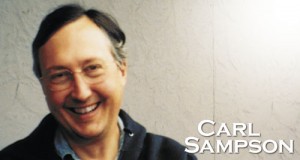 It was a hot summer night in a basement just outside Philadelphia, and the band was at full throttle. Two screaming guitars, drums and a bass guitar wailing away the time.
It was a hot summer night in a basement just outside Philadelphia, and the band was at full throttle. Two screaming guitars, drums and a bass guitar wailing away the time.
Then the rhythm guitar player’s mom came downstairs.
“You’d better come up here,” she ordered. “Something important is happening.”The date: July 20, 1969.
We dutifully set down the guitars and drumsticks and went upstairs, where Mrs. McDonnell had turned on the TV so we could see one of the biggest moments in history: astronaut Neil Armstrong walking on the moon.
We stared at the flickering black-and-white image, Armstrong emerged from the lunar lander, worked his way down the steps and alighted on the surface of the moon, about 240,000 miles from where we stood.
When he reached the surface, he told the world, “That’s one small step for a man, one giant leap for mankind.”
Amid the many trials of the 1960s – war, assassinations and rioting in the streets of many cities – this single moment stood out. It united not just the nation but the world in a signature accomplishment, something that had never before been done.
This month, a lot will be written and said about that accomplishment. But I think there’s more to consider on this anniversary. I think we need to take a look at the way we educate ourselves. When I was in high school, students were required to take at least one foreign language. French, German, Russian, Italian and Latin were the choices. We were also required to take math, physics, chemistry and biology, and advanced classes were offered in all of those subjects.
In shop class, we were required to know how to repair cars, build furniture and even do plumbing and electrical work. In Home Economics we learned to cook, invest in stocks and bonds and to balance a checkbook. In music class, we listened to the compositions of Beethoven and Leonard Bernstein.
But more importantly, we were urged on by our teachers to learn more. They made it their goal to light the fire of curiosity combined with competence that would propel us into life, be it college or a job.
When we graduated, we were ready for that next step.
I wonder about that now. I talk with high school and college graduates, and wonder if they were let down. They might know a lot about a few things, but they appear to know almost nothing about some other things.
For example, a computer whiz might know lots about algorithms and coding, but not much about history, or music or people. By the same token, a liberal arts major may know lots about history, or music or people, but nothing about science or technology.
In short, both are educated ignoramuses. They know what they know, but they’re not even curious about what they don’t know.
And that’s sad. I know that a large part of life is earning a paycheck, keeping the bills paid and having a place to live. No doubt about it. But what about the rest of life? Are we equipping – inspiring – our high school and college students with the knowledge and tools they’ll need to live a full life?
The engineers and scientists who worked on the Apollo program that put the first man on the moon went through high schools and colleges that required more of them than just learning about their majors. In addition to their technological expertise, they were required to become complete human beings.
Carl Sampson is a freelance writer and editor.